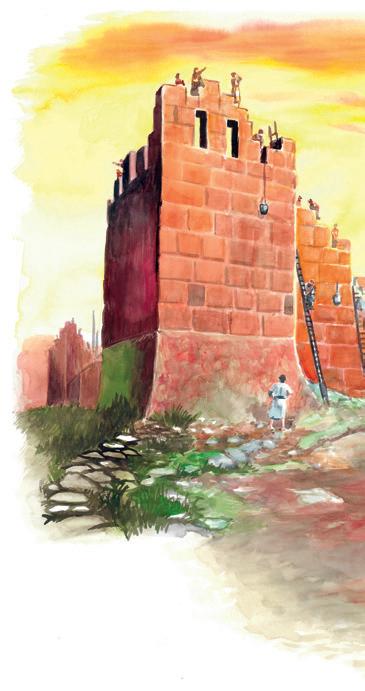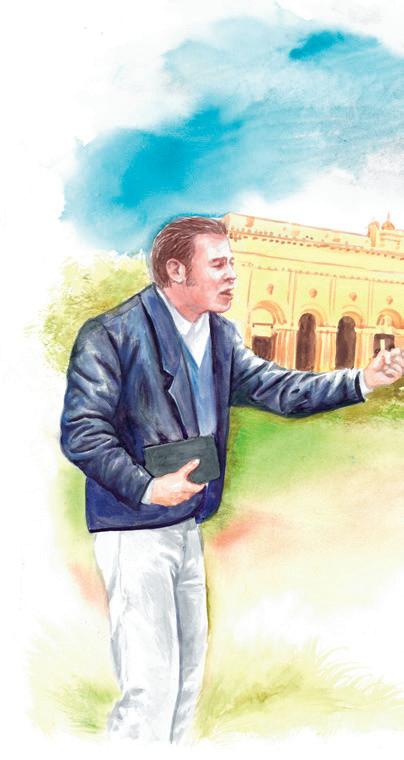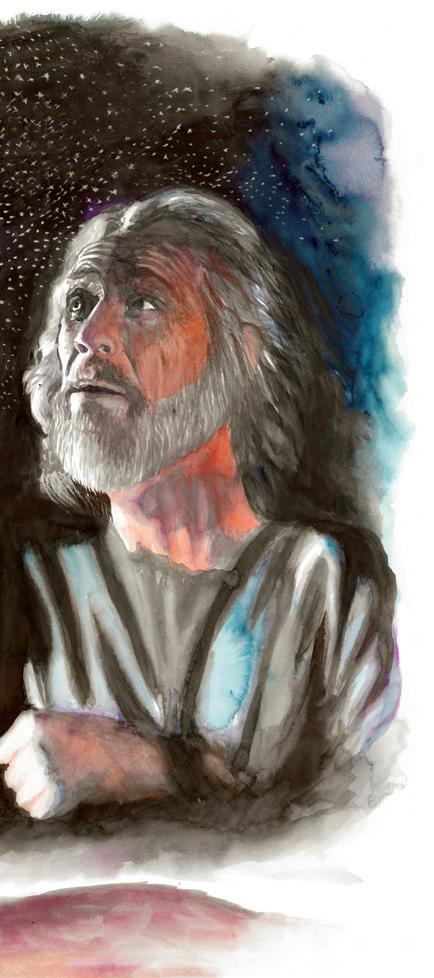
4 minute read
Devotional WHEN YOU CANNOT SLEEP
from 790_English
“On that night could not the king sleep, and he commanded to bring the book of records of the chronicles; and they were read before the king.” Esther 6:1
DEVOTIONAL
Advertisement
Rev. José A. Soto
WHEN YOU CANNOT SLEEP
This passage tells about the time when Persian
king Ahasuerus, who ruled the Persian empire at its zenith, could not sleep. During his empire, God’s people was scattered throughout 125 provinces. This means that in every corner of the empire, people were waiting on God and His promises, even though they were living in unpleasant conditions, under oppressive circumstances.
Esther’s arrival at the royal palace was the result of God’s intervention. After queen Vashti refused to come before king Ahasuerus at the royal feast, thus defying his command, her deposition was immediate, and Esther took over as queen of the Persian Empire.
It should be no surprise to anyone that in the midst of God’s blessing, someone like Haman arises. He moved up and managed to hold a position of great importance in the reign: he was appointed vizier, which is like a viceroy. Haman exalted himself and whenever he met someone at the palace they had to bow. But Mordecai the Jew, Esther’s adoptive father, stood his ground and never bent the knee before any man (Esther 3:2).
Haman, full of wrath, decided to kill Mordecai and the Jews. He appeared before king Ahasuerus and told him about a certain people scattered all over his territory that did not contribute to the kingdom’s profit and so did not deserve to live. When Haman proposed to offer to pay ten thousand silver talents to destroy the Jews, the king, who knew nothing about them and did not care to, answered, “The silver is given to thee, the people also, to do with them as it seemeth good to thee” (Esther 3:11).
Haman sent letters in different languages into all the king’s provinces, to destroy, kill and cause to perish all Jews. It was an irrevocable command, and so it had to be obeyed (Esther 3:15). It was then that God deprived the king of his sleep.
“And it was found written, that Mordecai had told of Bigthana and Teresh, two of the king’s chamberlains, the keepers of the door, who sought to lay hand on the king Ahasuerus” (Esther 6:2). When the king asked if Mordecai had been rewarded for such action, his servants told him that nothing had been done for him. It was then that
Haman came in and the king asked him, “What shall be done unto the man whom the king delighteth to honor?” Haman thought in his heart, “To whom would the king delight to do honor more than to myself?” (Esther 6:6).
Haman, thinking that the king was talking about him, demanded the highest honor: “For the man whom the king delighteth to honor, let the royal apparel be brought which the king useth to wear, and the horse that the king rideth upon, and the crown royal which is set upon his head, and let this apparel and horse be delivered to the hand of one of the king’s most noble princes, that they may array the man withal whom the king delighteth to honor, and bring him on horseback through the street of the city, and proclaim before him, Thus shall it be done to the man whom the king delighteth to honour” (Esther 6:7-9).
Haman was ready to hang Mordecai, but the king ordered him to go where Mordecai was and do all as he had said (Esther 6:10). Haman had to proclaim in the whole city that Mordecai was the man whom the king wanted to honor! When Haman came home, ashamed because of the incident, his wife said unto him: “If Mordecai be of the seed of the Jews, before whom thou hast begun to fall, thou shalt not prevail against him, but shalt surely fall before him” (Esther 6:13).
Haman’s murderous plot against Mordecai and the Jewish people was being thwarted by the Lord through Esther. She resorted to prayer and fasting, and God gave her grace in the eyes of Ahasuerus, who asked her, “What wilt thou, queen Esther? and what is thy request? it shall be even given thee to the half of the kingdom” (Esther 5:3).
Esther asked him to come to a banquet she had prepared for him; when he arrived at the feast, Ahasuerus made her the same question. (Esther 5:6). Once again, she asked him to come with Haman to another banquet.
At this new banquet, the king insisted that Esther should tell him what she wanted. Finally, she requested him to save her from the extermination to which she had been condemned along with her people. At these words, the king was furious: “Then the king Ahasuerus answered and said unto Esther the queen, Who is he, and where is he, that durst presume in his heart to do so? and Esther said: The adversary and enemy is this wicked Haman. Then Haman was afraid before the king and the queen.”
Overcome with rage, the king went out into the garden, while Haman, feeling death upon his head, fell upon Esther’s bed to beg her to spare his life. When Ahasuerus entered and saw him on the queen’s bed, he cried out in outrage: “Will he force the queen also before me in the house?” (Esther 7:8). One of the king’s chamberlains covered Haman’s head, took him out and hung him on the same gallows that Haman had prepared for Mordecai.










